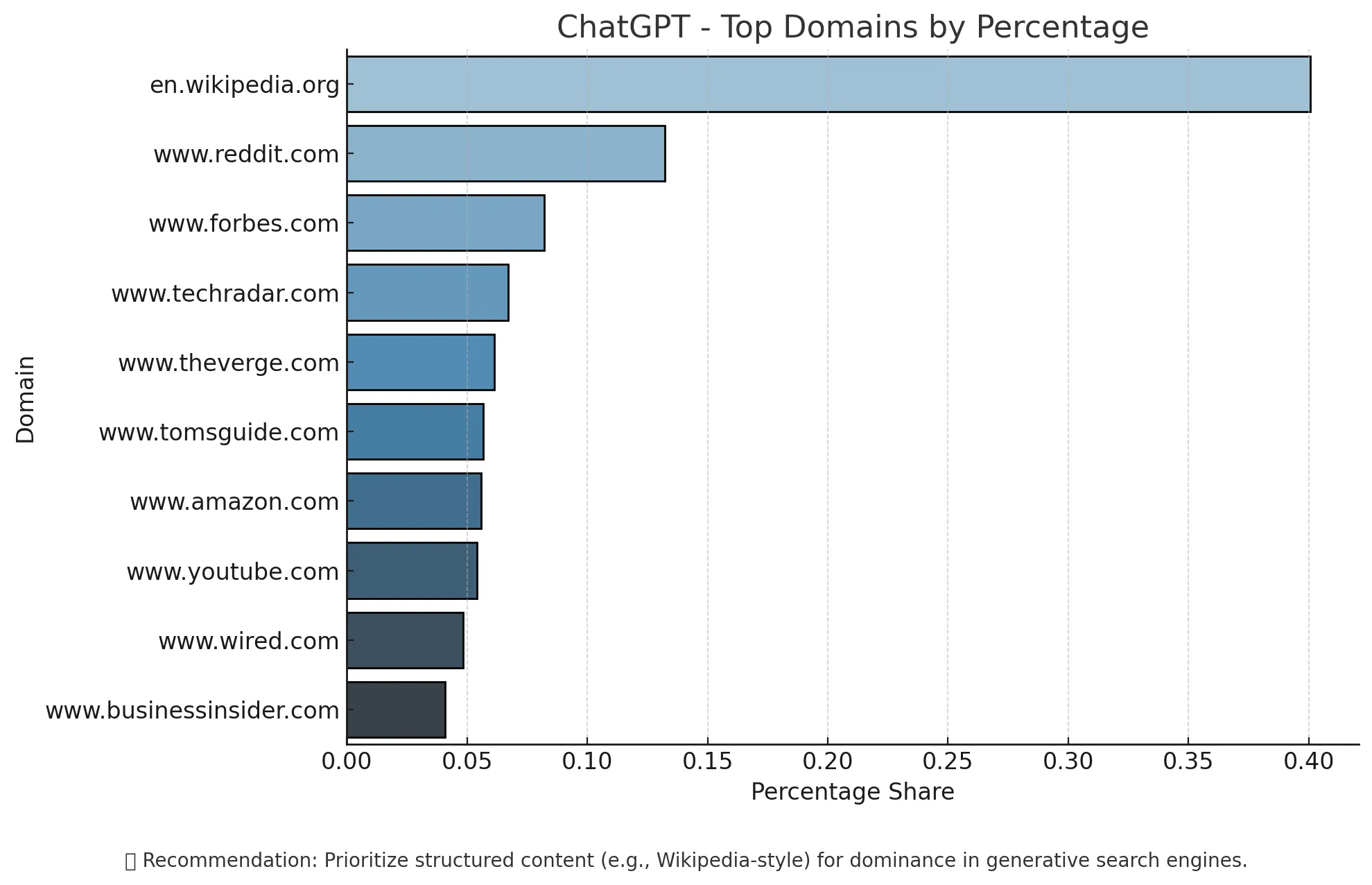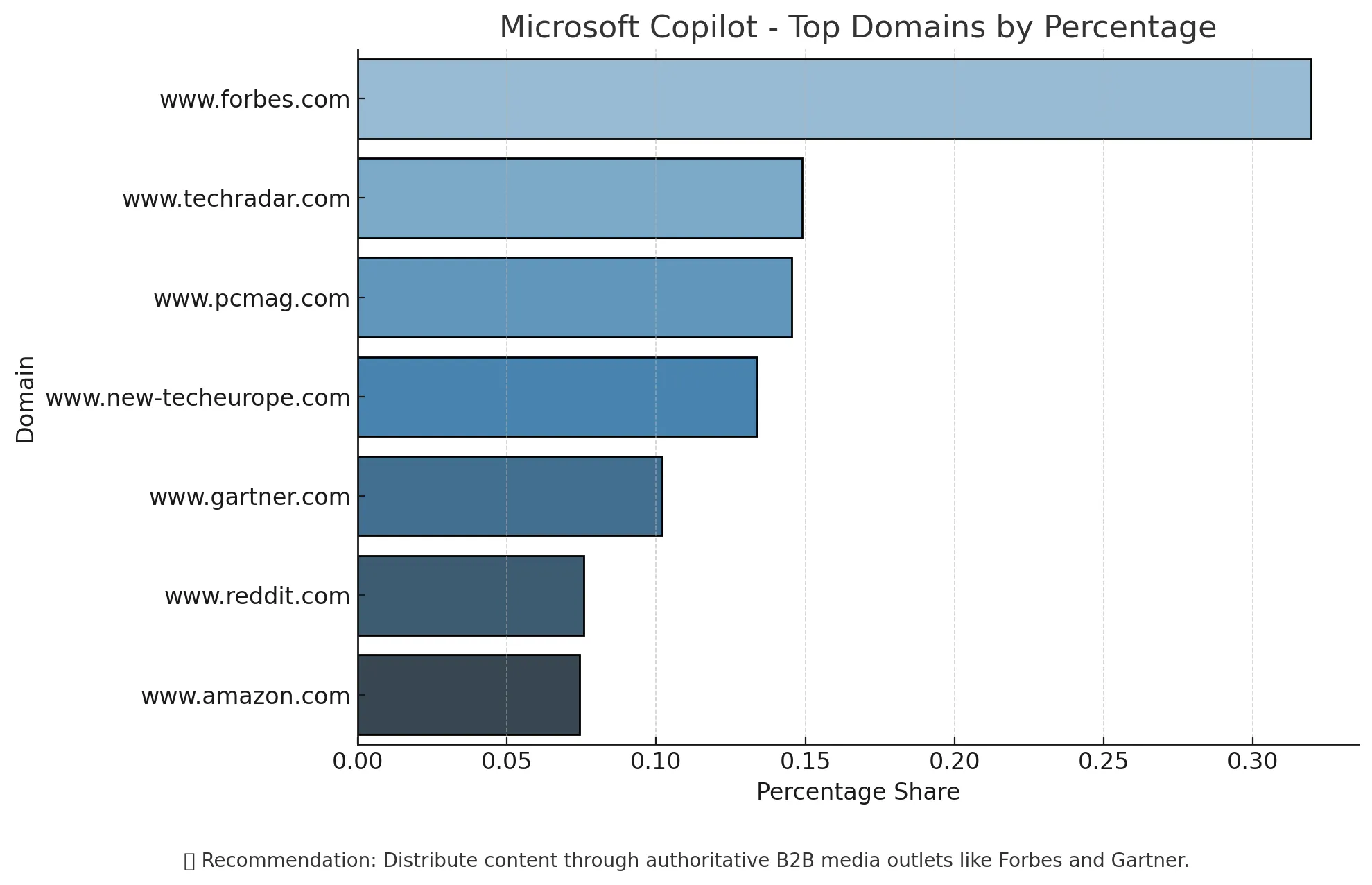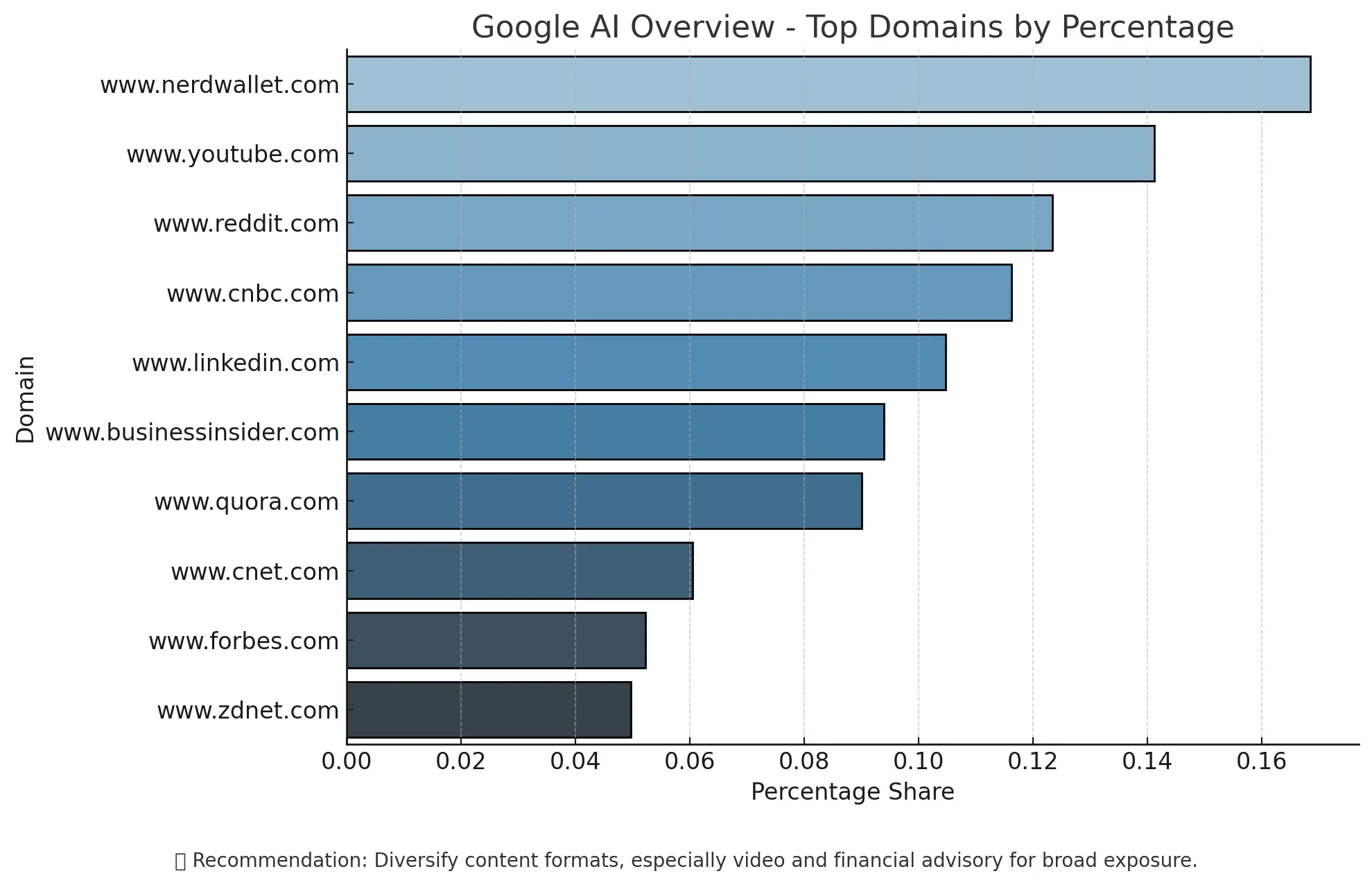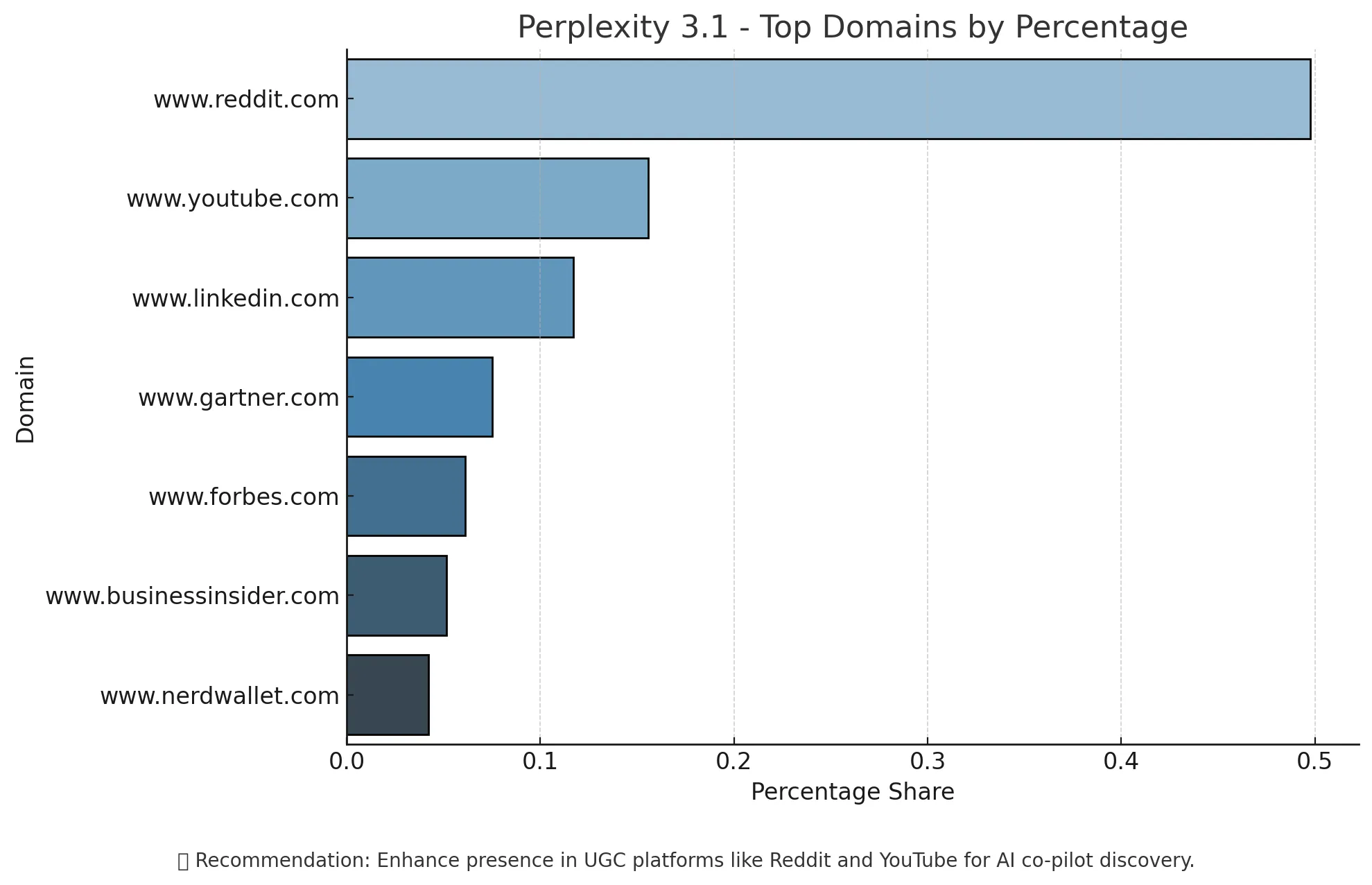We analyzed data from over 50 million user journeys across four major AI search platforms: ChatGPT, Microsoft Copilot, Google AI Overview, and Perplexity 3.1.
Our goal was simple: understand which domains these engines cite most - and uncover how your brand can earn greater visibility in AI-generated answers.
This is just a preview. Our full dataset tracks thousands of domains, across verticals, content types, and intent signals. But even this teaser reveals critical insights - and high-leverage actions - for forward-thinking marketers and content strategists.
Methodology: Domain Citations in AI Search
Each engine's top 10 cited domains were extracted, with citation volume and percentage share calculated. This gives us a clear view into the types of sources each engine favors - whether encyclopedic, editorial, social, or user-generated.
Key Patterns by AI Engine
1. ChatGPT is Anchored in Wikipedia and High-Authority Tech Editorial
Wikipedia accounts for 40% of ChatGPT's citations - the highest concentration in any engine-domain pairing we observed.
Other commonly cited sites include Reddit, Forbes, TechRadar, and YouTube, highlighting a blend of reference, community, and editorial sources.
Strategic Takeaways:
- Optimize Wikipedia entries directly relevant to your brand, product, or category. Ensure pages mentioning your brand are accurate, well-cited, and comprehensive.
- Pitch product features or launches to Wikipedia-cited outlets (e.g., TechRadar, Forbes) to increase indirect influence.
- Surface community dialogue in forums like Reddit when launching technical or controversial content - it earns ChatGPT visibility.

2. Microsoft Copilot Prefers Enterprise-Grade Business Media
Forbes leads with 32% of citations, followed by TechRadar, PCMag, and Gartner.
Microsoft Copilot favors polished, high-authority business and tech publications. It's more evenly distributed than ChatGPT, but clearly optimized toward B2B credibility.
Strategic Takeaways:
- Earn placements in high-authority B2B media through guest bylines, interviews, or analyst coverage.
- Use whitepapers and primary research to land citations in Gartner-style writeups and briefings.
- Avoid low-tier content marketing - Copilot seems to weight editorial trust and domain authority heavily.

3. Google AI Overview Values Financial Authority and Multimedia Depth
NerdWallet tops Google's list at 17%, followed by YouTube, Reddit, CNBC, and LinkedIn.
This engine draws from a wide mix - financial publishers, video-first platforms, and social-professional networks.
Strategic Takeaways:
- Contribute to or collaborate with top-tier financial content hubs if you operate in B2C or fintech.
- Build authoritative video content - YouTube's citation weight signals preference for multimedia responses.
- Treat LinkedIn as a citation channel - well-structured, publicly visible posts can propagate into AI summaries.

4. Perplexity Relies Heavily on Community-Based Sources
Reddit alone accounts for 50% of citations - a uniquely high concentration.
This engine leans into forums, commentary threads, and UGC-rich domains. YouTube and LinkedIn follow, but Reddit is dominant.
Strategic Takeaways:
- Engage directly in relevant Reddit threads and communities. Comment, link transparently, and encourage dialogue around your domain.
- Seed explainers and guides that are easily linkable and sharable within Reddit's high-trust subcultures.
- Optimize YouTube descriptions and comments for clarity and brand positioning - Perplexity parses UGC more deeply than traditional search engines.

Final Word: AI Optimization is Not SEO
AI search optimization isn’t a rebrand of SEO. It’s a fundamental shift.
Traditional SEO optimizes for indexed queries and SERP structure. AI search, by contrast, surfaces direct answers pulled from a hierarchy of trusted domains - some of which you can influence, and others you must be cited by.
That’s why BrandLight is building frameworks and intelligence around AEO: AI Engine Optimization. We’re helping brands monitor, model, and improve their AI search visibility across engines - and benchmark it over time.
Contact us if you want to see how visible your brand is in AI Search?
.png)
.webp)
.webp)
.webp)